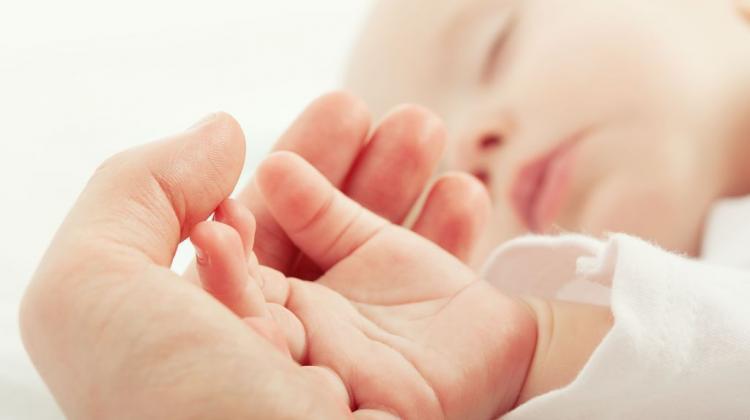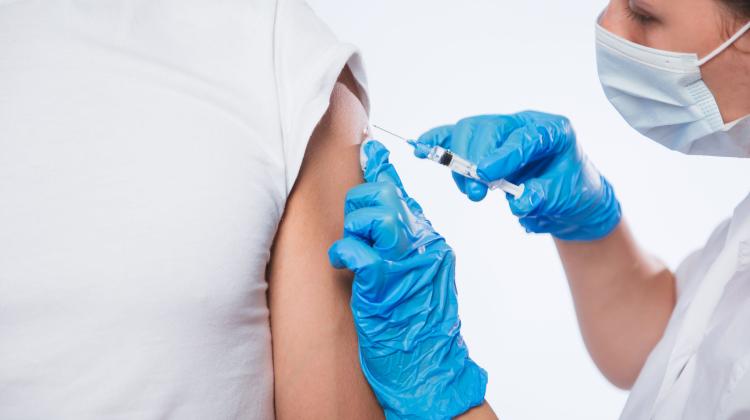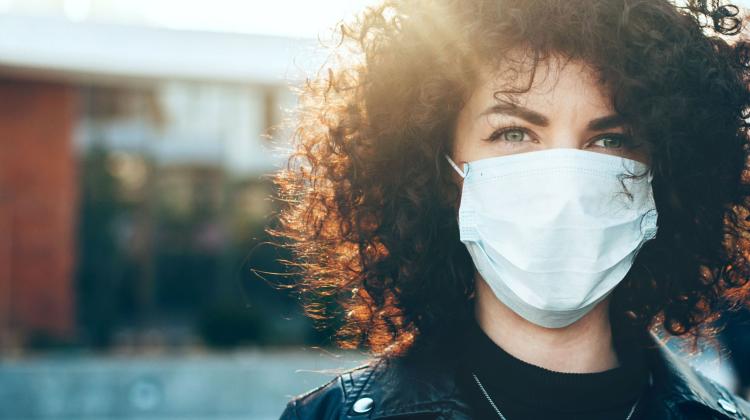Coronavirus and Newborns: Many Questions but Keep Calm
 Credit: Fotolia
Credit: Fotolia
According to the British public health agency, in addition to those suffering from asthma, chronic heart disease and kidney disease, pregnant women are also among those at increased risk of severe illness from coronavirus. Increased risk means not only a greater chance of infection, but also the severe course of the disease. But although the future mother's health and well-being can be monitored relatively easily, for the foetus the process is more complicated.
Do we have reasons to fear the health of the next generation in the face of the COVID-19 pandemic? Research does not give clear results yet but advice from institutions like the American College of Obstetricians and Gynecologists is to remain calm.
Foetal life during the coronavirus pandemic
Pregnancy is a time full of difficult tasks for the foetus, tasks that must be done on time regardless of external conditions including the COVID-19 pandemic. For the foetus, 'external conditions' are largely determined by the mother's body.
From the moment of conception, the human embryo has less than 40 weeks to transform from a single cell measuring less than a millimetre into an approximately 3.4-kilogram human being. According to CSO data, around 375,000 newborns successfully complete this biologically complex process each year.
If conditions during the time spent in the mother's belly are unfavourable, they prevent proper development and often mean that the child cannot fully use its genetic potential. This untapped potential translates into physical and intellectual disability. In addition, the theory of 'foetal programming' suggests that conditions during pregnancy translate into health in adulthood. So, for example, the risk of having a heart attack in adult life may depend on whether the person grew 'nicely' as a foetus.
So the pandemic poses urgent questions for doctors and future parents around the world. Can a mother infected with COVID-19 pass the virus on to the child? If an infection is possible, in which trimester of pregnancy does it pose the greatest threat? How does infection affect foetal development and the long-term health of the new person?
History lesson: conclusions from previous epidemics
The above questions are all the more important because past epidemics are known where viruses were transmitted from mother to unborn child. For example, in 1964, Americans faced a rubella epidemic. Rubella virus is highly contagious. Importantly, in most people rubella only causes harmless and quick-passing symptoms such as fever and weakness. So why did the virus cause such concern among doctors then, and to this day where in many countries we are screening pregnant women for HIV, syphilis and rubella? The rubella virus, which is essentially harmless to adults, is able to penetrate the foetus. An infected foetus pays a high price. Rubella during pregnancy can lead to permanent foetal damage and disability.
During that epidemic, 20,000 American children were born with serious vision, hearing and intellectual disabilities. Therefore, until the discovery of the vaccine and its widespread introduction, a disease that was relatively harmless for the majority of society turned out to have an impact on the health of the next generation. The question that needs to be answered today is can an infected SARS-CoV-2 mother transmit the virus to her child, and if so, how?
The path that the virus must follow to infect the fetus
During normal pregnancy, the placenta not only allows for the exchange of substances between the baby's and the mother's blood, but also serves as a barrier between them. This is important because the foetus has genetic material from both mother and father. Thanks to the placental barrier, the mother does not perceive the foetus as a foreign body that must be combated and eliminated.
Unfortunately, some viruses can cross the placenta of a pregnant woman. This group includes rubella or Zika virus (wave of infections in South America during the Olympic Games in Rio in 2016, causing brain hypoplasia of the foetus). In addition to the placenta, there are two other routes of infection between the baby and mother: during delivery (e.g. herpes virus), or through the mother's milk (e.g. HIV).
The race of scientists
So how do we find out if a foetus can be infected with SARS-CoV-2 in the womb? With the right time buffer, we could afford a common approach in science: in vitro - in vivo, starting from research on thousands of cells growing in laboratory plates, or placental organoids grown since 2018. Organoids are human mini-placentas created on a plastic laboratory dish. With this knowledge from laboratories, we would know how to direct in vivo physiological studies in pregnant mammals.
But the epidemic situation requires unusual measures and quick answers. Just like the potential vaccine against SARS-CoV-2 not being tested on animals and immediately being given to the first healthy volunteers in the US, in the case of the impact of COVID-19 on foetal life we also need to look directly at people.
Prognosis for the first newborns during the COVID-19 epidemic
So let's analyse the initial data. Reports from many Chinese institutions suggest that pregnant women infected with SARS-CoV-2 are more likely to have perinatal complications, including premature birth (47 percent of women with COVID-19). This is not necessarily a direct effect of the SARS-CoV-2 virus on the foetus, however, as different stressful conditions of the last weeks of pregnancy in infected women may also explain this observation.
In addition, data published in one of the most prestigious medical journals The Lancet inspire optimism. Doctors analysed pregnant women in Wuhan (China) with symptoms of COVID-19, in whom laboratory tests confirmed virus infection. Samples of amniotic fluid (the substance, in which the foetus 'floats'), umbilical cord blood, breast milk and baby throat swabs were subjected to detailed examination. In no case did the examination of these cells detect the presence of SARS-CoV-2. So the mother did not infect the foetus.
However, this result should be treated with great caution. The study of Professor Zhang's group published in The Lancet was conducted only on nine pregnant patients. Even with untreated HIV, only one in four mothers infects a child. So, although none of the nine pregnant women transmitted the SARS-CoV-2 virus to their children, this does not mean that infection in utero is impossible. In addition, another group from Wuhan reported three confirmed cases of COVID-19 in newborns. At this point, however, we cannot determine whether the infection occurred during pregnancy or in hospital conditions shortly after birth. Only analyses of tens of thousands of pregnancies in countries affected by the pandemic will give certainty.
Open issues
The first case of pneumonia caused by COVID-19 was announced less than four months ago. Weeks passed before we realized that we were facing a pandemic. Although the isolation order applies not only to schools and kindergartens but also research institutions, researchers are keeping busy. The first reports concerning the small group of pregnant women in Wuhan suggest optimism: it is possible that an infected woman cannot pass on the virus to a foetus. For now, calm is recommended by the American College of Obstetricians and Gynecologists (ACOG); for example, mothers with suspected COVID-19 are not advised against breastfeeding. ACOG suggests, however, to breastfeed in a face mask and to thoroughly wash hands after.
The entire pregnancy period lasts over nine months, and the COVID-19 pandemic started only four months ago. Therefore, we still have no information about the prognosis of newborns whose mothers were infected with coronavirus in the first trimester of pregnancy. The next few months will certainly bring answers to these questions.
It is comforting to say that Stanley Plotkin, professor and main originator of the rubella vaccine that saved thousands of pregnancies, has also joined the fight for a safe future for the new generation as an adviser to institutions testing potential vaccines against coronavirus (Wadman, M. in Science).
Author: Dr. Agata P. Zielińska - a molecular biologist, University of Cambridge, Association of Science Advocates
The information in the first paragraph is taken from THIS website.
ekr/ kap/
tr. RL
Przed dodaniem komentarza prosimy o zapoznanie z Regulaminem forum serwisu Nauka w Polsce.


















